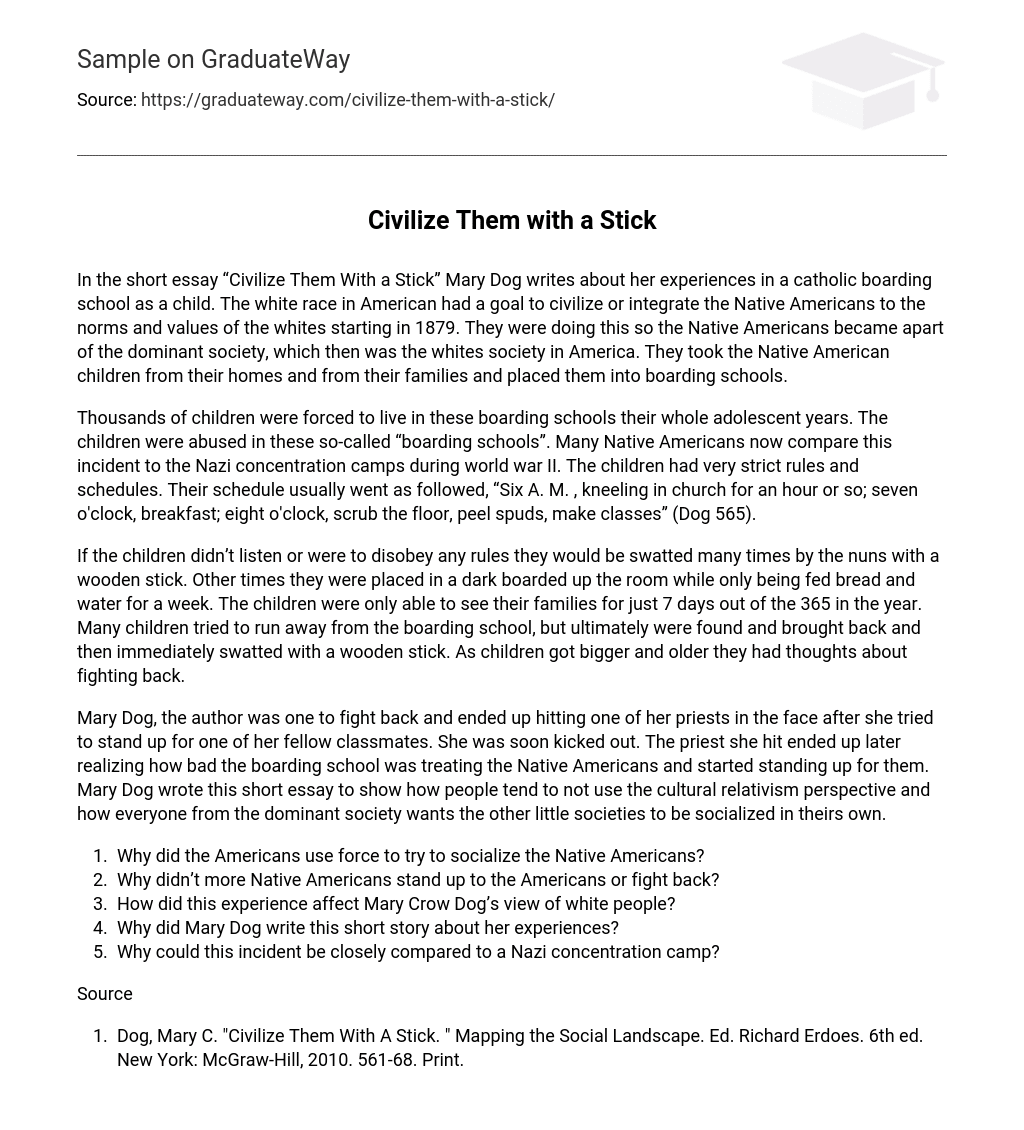Mary Dog, in her essay “Civilize Them With a Stick,” reflects on her upbringing at a catholic boarding school. The aim of the white race in America, beginning in 1879, was to integrate Native Americans into the cultural standards and principles of white society. This involved forcefully separating Native American children from their homes and families and enrolling them in boarding schools.
Thousands of children were compelled to reside in these boarding schools throughout their entire adolescence. The children were mistreated in these purported “boarding schools”. Presently, many Native Americans draw parallels between this occurrence and the Nazi concentration camps, which occurred during World War II. The children had exceedingly stringent regulations and timetables. Typically, their daily routine consisted of the following activities: ‘Six A.M., kneeling in church for approximately an hour; seven o’clock, breakfast; eight o’clock, clean the floor, peel potatoes, attend classes” (Dog 565).
If the children refused to listen or disobeyed any rules, the nuns would repeatedly swat them with a wooden stick. Alternatively, they would confine them to a dark boarded-up room for a week, providing only bread and water. Throughout the year, the children were allowed only a mere 7 days to visit their families out of the total 365. Despite numerous attempts by children to escape the boarding school, they were always located and subsequently subjected to immediate beatings with a wooden stick. As the children grew older and stronger, they entertained thoughts of retaliating.
Mary Dog, the author, displayed her fighting spirit when she stood up for a fellow classmate and struck one of her priests in the face. Unfortunately, this resulted in her expulsion from the boarding school. Interestingly, the priest she hit eventually recognized the mistreatment of Native Americans at the school and began advocating for their rights. Mary Dog wrote this brief essay to demonstrate the lack of cultural relativism in society and how those from the dominant culture often expect smaller societies to conform to their own.
- Why did the Americans use force to try to socialize the Native Americans?
- Why didn’t more Native Americans stand up to the Americans or fight back?
- How did this experience affect Mary Crow Dog’s view of white people?
- Why did Mary Dog write this short story about her experiences?
- Why could this incident be closely compared to a Nazi concentration camp?
Source
- Dog, Mary C. “Civilize Them With A Stick. ” Mapping the Social Landscape. Ed. Richard Erdoes. 6th ed. New York: McGraw-Hill, 2010. 561-68. Print.





